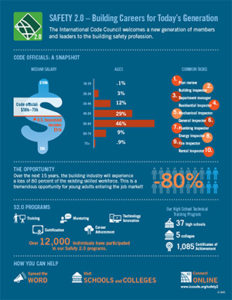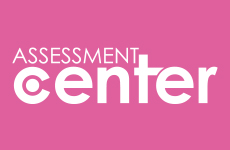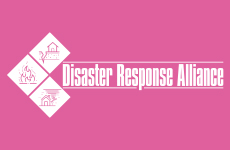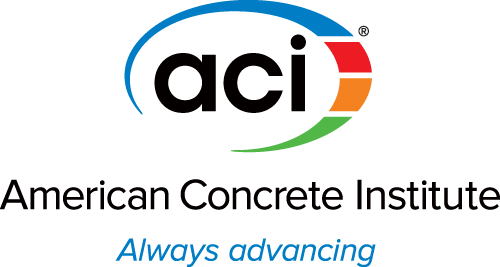

Training the Next Generation
WEEK TWO // May 10–16, 2021
Virtual Webinar Sponsored by:
Sponsored by: 



Training the Next Generation
WEEK TWO // May 10–16, 2021
Virtual Webinar Sponsored by:
Sponsored by: 


Importance of Training and Professional Development
Well-trained, motivated building safety professionals are key to creating and maintaining a successful built environment. Training is important because it helps code officials avoid mistakes and accidents and properly enforce the code. The building safety field encompasses a wide gamut of specialties and offers many excellent career opportunities that contribute to the safety of the built environment. Here are just a sampling:
- A building inspector inspects structures to determine compliance with the various building codes and standards adopted by the jurisdiction.
- A building official manages the development, administration, interpretation, application and enforcement of the codes adopted by their jurisdiction.
- A special inspector provides a specialized inspection of structural material fabrication and placement, such as poured concrete, structural steel installation and fasteners, etc.
- A permit technician assists in the issuance of construction and development permits to ensure compliance with the provisions of a jurisdiction’s adopted regulations and codes.
- A fire marshal develops and delivers fire prevention and implements public fire safety programs that provide for inspections of occupancies for life safety and fire issues in accordance with codes and standards adopted by their jurisdiction.
- A plumbing inspector inspects the installation, maintenance and alteration of plumbing systems complete with their fixtures, equipment, accessories, and appliances.
Visit the Code Council’s Learning Center to learn more about available training options.
Building Careers for Today’s Generation

The Code Council has developed Safety 2.0 to welcome a new generation of members and leaders to the building safety profession. Programs include our Technical Training Program and our Military Families Career Path Program — which promotes building safety careers for military personnel after service. If you’re a student or professional looking for a new career, check out the Building Safety Career Path.
Mutual Aid
The Disaster Response Alliance’s mission is to assist local, state and federal entities with easy access to a single, national database of skilled volunteers willing to assist with response and recovery activities, including post-disaster safety assessments, building damage assessments, inspections and other code-related functions in the aftermath of a disaster.
FEMA's annual Mutual Aid for Building Department (MABD) regional fact sheets provide an overview of mutual aid laws and regulations in each state or territory, for response teams to assist with building code safety and enforcement after disasters. FEMA funding is available to reimburse costs associated with post-disaster mutual aid.
Additional Information and Resources








